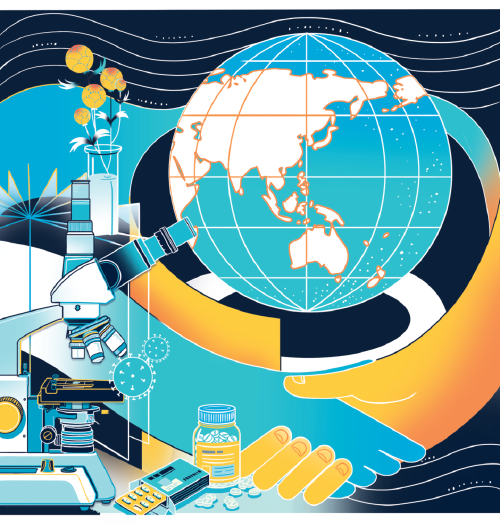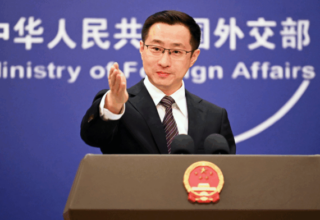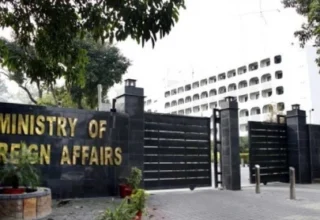
Shamshad Akhtar
- Dealing with the unknowns of a new virus is a challenge and global cooperation and collective action are required to overcome it
- Given the size of the country’s population and its density, public health is of paramount significance to the Chinese authorities
Courtesy China Daily
China has a good track record of fighting epidemics, and it should be recognized that given its decisiveness and determination, China has been successful in taking resolute actions to curb the spread of the novel coronavirus. The World Economic Forum has stated that China launched the largest quarantine order in human history affecting almost 45 million people, isolating whole cities.
China has established a data collection system, with coordinated efforts across regions in which agencies offer daily updates on the epidemic, including clinically diagnosed cases. Mobile apps have been developed to track and find people who may be infected with the virus, and monitor those traveling on flights and trains; medical staff across the country have been mobilized, and community awareness and knowledge has helped galvanize prevention efforts with offices and communities equipped to monitor the body temperature of everyone and isolate those who may have a fever at home for at least 14 days.
Technology enterprises have been playing their role by offering open platforms and tools that provide epidemic analysis and maps showing the location of cases of infection. Technology helps monitor body temperatures in places with dense flows of people while big data applications allow for solid analysis of the collected data. Unmanned aerial vehicles have been employed for epidemic control purposes in more than 18 provinces, and artificial intelligence diagnosis has reduced the time to confirm infection from 12 hours to 2 hours. China is investing a lot in these ventures and into the research and development of medicines and vaccines.
Chinese society is committed to fighting the epidemic. Protective suits and other medical supplies have flooded into Wuhan, Hubei province, the most serious affected city. Leaders, including those of the Boao Forum for Asia countries, the G20 members and international bodies such as World Health Organization have acknowledged the efforts of the Chinese government and the Chinese people in their fight against the coronavirus outbreak.
And tangible assistance, as well as expressions of sympathy and support, has also poured into China from more than 170 countries and 40 international organizations. The international community has stepped up its support for China as evidenced by countries offering financial assistance as well as the provision of medical supplies such as masks, gloves, protective suits, disinfectants, drugs and medicines.
But epidemics are infectious and watertight controls are needed to stop the transmission of the virus, including managed borders with testing facilities. In today’s world, with deepening interconnectedness supported by the large multimodal transportation networks, it is not surprising that epidemics spread beyond borders.
The novel coronavirus does not have a nationality, race or gender, more cooperation means less pain and faster relief. The measures adopted by China offer valuable experience for other countries.
Public health policy and public health infrastructure development, learning exchanges and better risk management of cross-border mobility, as well as medical cooperation are critical elements in the fight against epidemics. A coordinated and multipronged response is needed in five main areas.
First, there is need for global and collective actions to address epidemics. The World Health Organization, being a global body, needs to play a more instrumental role in promoting coordination to prevent epidemics, contain the spread of dangerous pathogens and support mitigation efforts. In this context, funding and expertise are crucial and more official development assistance should be directed toward supporting countries effectively and to developing global teams to build capacities and knowledge and ensure the buildup of inventories of medical items such as masks, protective suits and test equipment.
Second, global funding for research and development to help with diagnoses and treatment options would go a long way to addressing epidemics as there are variant virus outbreaks and every time an outbreak occurs it is often bigger than what was witnessed in the past.
Third, deployment of frontier technologies could play a significant role in advancing medical knowledge and controlling the spreading of an epidemic.
Fourth, ensuring public and private medical facilities are strengthened to deal with outbreaks and are geared for containment of epidemics with adequate equipment and trained staff.
Fifth, encouraging local governments to clean up markets and encourage healthy eating habits.
As China’s approach to fighting the outbreak is proving effective, the country will be able to see a turning point. This would vindicate China and the world will again recognize the resilience of the country and its people.
Editor’s Note: The author is the policy advisor to the secretary general of the BOAO Forum for Asia & former under-secretary of the United Nations. He contributed this article to China Watch, a think-tank powered by China Daily. The views don’t necessarily reflect those of DiploMag.








